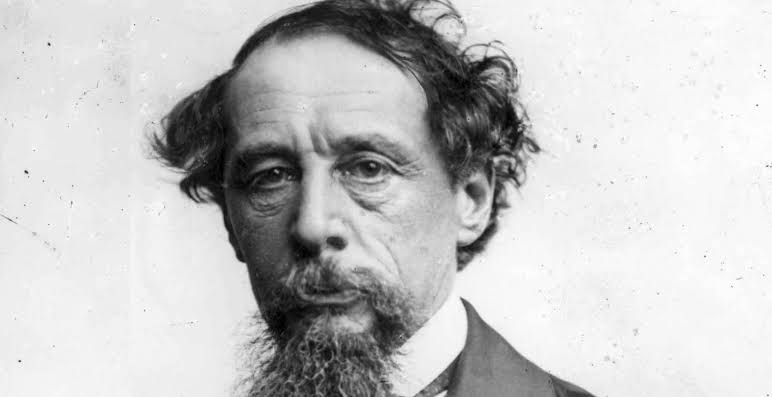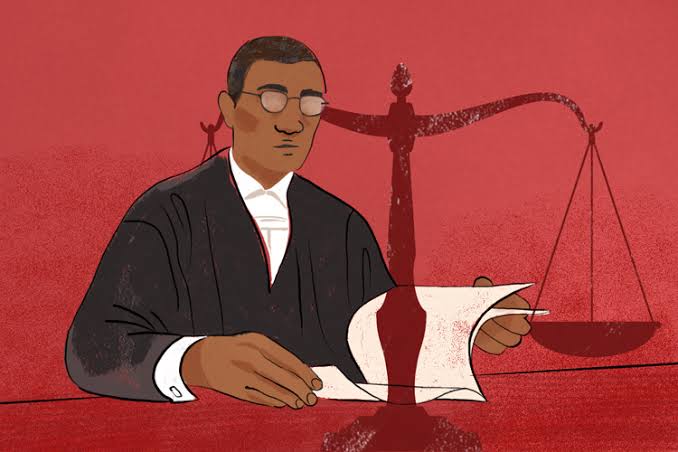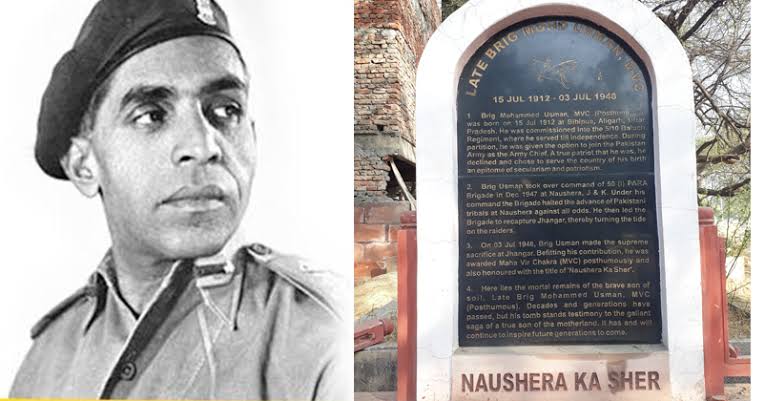Echoes of Nation’s Spirit: Brigadier Mohammad Usman of Naushera

On his 113th birth anniversary, we remember the ‘Lion of Naushera’—a soldier, patriot, and symbol of unity whose legacy continues to guide India’s conscience.
On July 15, 2025, India marks the 113th birth anniversary of Brigadier Mohammad Usman, affectionately remembered as the ‘Lion of Naushera’. His life and sacrifice remain a touchstone for a nation that, at its birth, needed more than just borders—it needed heroes of character, integrity, and conviction.
Brigadier Usman was not only one of independent India’s first military legends but also a symbol of its secular ideals. He stood tall in a time of deep uncertainty, when Partition had torn the subcontinent along religious lines and communal fault lines ran deep. His choice to stay in India, lead its army, and die defending its soil is a lesson in courage—not just of the body, but of belief
From Azamgarh to Sandhurst: A Soldier’s Journey Begins
Born on July 15, 1912, in Bibipur (Azamgarh district), Uttar Pradesh, Mohammad Usman grew up in a household that deeply valued education, service, and moral uprightness. His early excellence in academics and sports led him to the University of Lucknow, and eventually, to the Royal Military Academy Sandhurst, the famed British military institution where many Indian officers of the pre-independence era were trained.
Commissioned into the Baloch Regiment of the British Indian Army in 1934, Usman quickly established himself as a disciplined, tactically astute officer. He served with distinction during World War II, particularly in the Burma campaign, where his leadership under hostile jungle conditions earned him admiration across ranks.
A Patriot’s Stand: Saying No to Pakistan
In 1947, as India gained independence and the subcontinent was torn apart by Partition, Usman, like many Muslim officers, faced a fateful decision. He was offered the top post in the Pakistan Army, a powerful position both in rank and symbolism. But Brigadier Usman chose to remain in India—a decision that would define his life and, ultimately, his martyrdom.
In choosing India, Usman wasn’t merely making a professional choice. He was staking his claim in a secular, inclusive India—an India where identity wasn’t to be defined by religion alone. His decision was a moral stand in a time of widespread moral collapse.
The Battle of Naushera: Where Legends Are Made
The 1947–48 Indo-Pakistani War over Jammu and Kashmir would immortalize Brigadier Usman in Indian military history. Assigned command of the 50 Para Brigade, he was tasked with halting the advance of Pakistan-backed tribal raiders and regular troops who had already captured Jhangar, a critical outpost near Naushera.
In February 1948, under Usman’s command, Indian forces launched a bold and brutal counteroffensive. Against overwhelming odds, they reclaimed Jhangar and decisively defended Naushera from further incursion. The operation was tactically brilliant and emotionally stirring. Brigadier Usman not only directed the campaign but frequently joined his soldiers at the front lines, rallying them under fire.
It was after this epic defense that he earned the title “Sher-e-Naushera”—The Lion of Naushera.
A Martyr at 35, a Hero for All Time
Usman’s triumph was short-lived. On July 3, 1948, while inspecting forward positions near Naushera, he was struck down by enemy shelling. At only 35 years old, Brigadier Mohammad Usman became the highest-ranking Indian Army officer to be martyred in the first war India fought as a free nation.
His funeral in Delhi was attended by Prime Minister Jawaharlal Nehru, Governor-General Rajagopalachari, Defence Minister Sardar Baldev Singh, and top military brass. He was laid to rest with full military honours at the Jamia Millia Islamia campus—a space that, like him, embodied India’s composite culture and pluralist ethos.
A Life Chronicled: From Screen to Page
Despite his incredible contribution, Brigadier Usman’s story faded into the background of national memory. Recent years, however, have seen a renewed effort to reclaim his legacy. Two major works have sought to tell his story.
“The Lion of Naushera: The Life and Times of Brigadier Mohammad Usman” by Ziya Us Salam and Anand Mishra (Bloomsbury) offers a concise yet powerful look into his life.
Now, an expansive new biography—“Roar of the Lion: The Story of Sher-e-Nowshera”—is set to be published by Rupa Publications. The author, who previously wrote, directed, and produced the docu-drama Nowshera ka Sher, spent 28 years meticulously researching Usman’s life, drawing from personal testimonies, archival records, and military dispatches. The biography not only recounts his battlefield glory but foregrounds his secular ideals, moral convictions, and unwavering loyalty during a time when betrayal was easy and bravery rare.
More Than a Soldier: A Secular Icon
Brigadier Usman was a devout Muslim and a devout Indian—unapologetically both. In a time of violent polarization, he saw no contradiction between his faith and his patriotism. His troops came from different faiths, but they fought as one under his command.
His leadership was as moral as it was military. As many accounts from his men reveal, he led with fairness, compassion, and discipline—qualities often absent in the chaos of wartime.
In today’s India, where debates around nationalism and identity rage with intensity, Usman’s life is a reminder of a foundational truth: true patriotism isn’t about exclusion—it’s about unity in diversity.
The author of Roar of the Lion is also working on a new English-language non-fiction work based on his extensive travels along the 740-kilometre-long Line of Control (LoC)—the same volatile terrain where Usman once fought. A previous Hindi work by the author on this subject was recognized by the Ministry of Defence. The upcoming book promises to shed light on the lives of both soldiers and civilians in this militarized zone, drawing a line of continuity from Usman’s battlefield to today’s complex border realities.
A Call to the Nation
As we remember Brigadier Mohammad Usman today, we must ask: Do we, as a nation, remember our real heroes? His grave in Jamia Nagar, Delhi, is seldom visited, and no major public monument carries his name. Yet his story is one that deserves to be told and retold—not just in military academies but in classrooms, civil society, and public discourse.
At a time when the meanings of nationhood and citizenship are under scrutiny, Brigadier Usman’s life reminds us that India’s greatness has always lain in its ability to hold contradictions, embrace plurality, and reward courage over conformity.
The Lion Still Roars
Brigadier Mohammad Usman did not fight for glory. He did not die for a headline. He lived and died for an idea—that India, despite its challenges, was worth fighting for.
On this 113th birth anniversary, let us honour his memory not with mere ritual, but with reflection. Let us teach his story, write about him, remember his sacrifice, and embody his values.
Because the Lion of Naushera did not roar for one moment alone.
He roared for a nation, and he roars still.
(Author is a former History Professor at St. Xavier’s College, Mumbai.)

 1 day, 17 hours ago
1 day, 17 hours ago





[[comment.comment_text]]